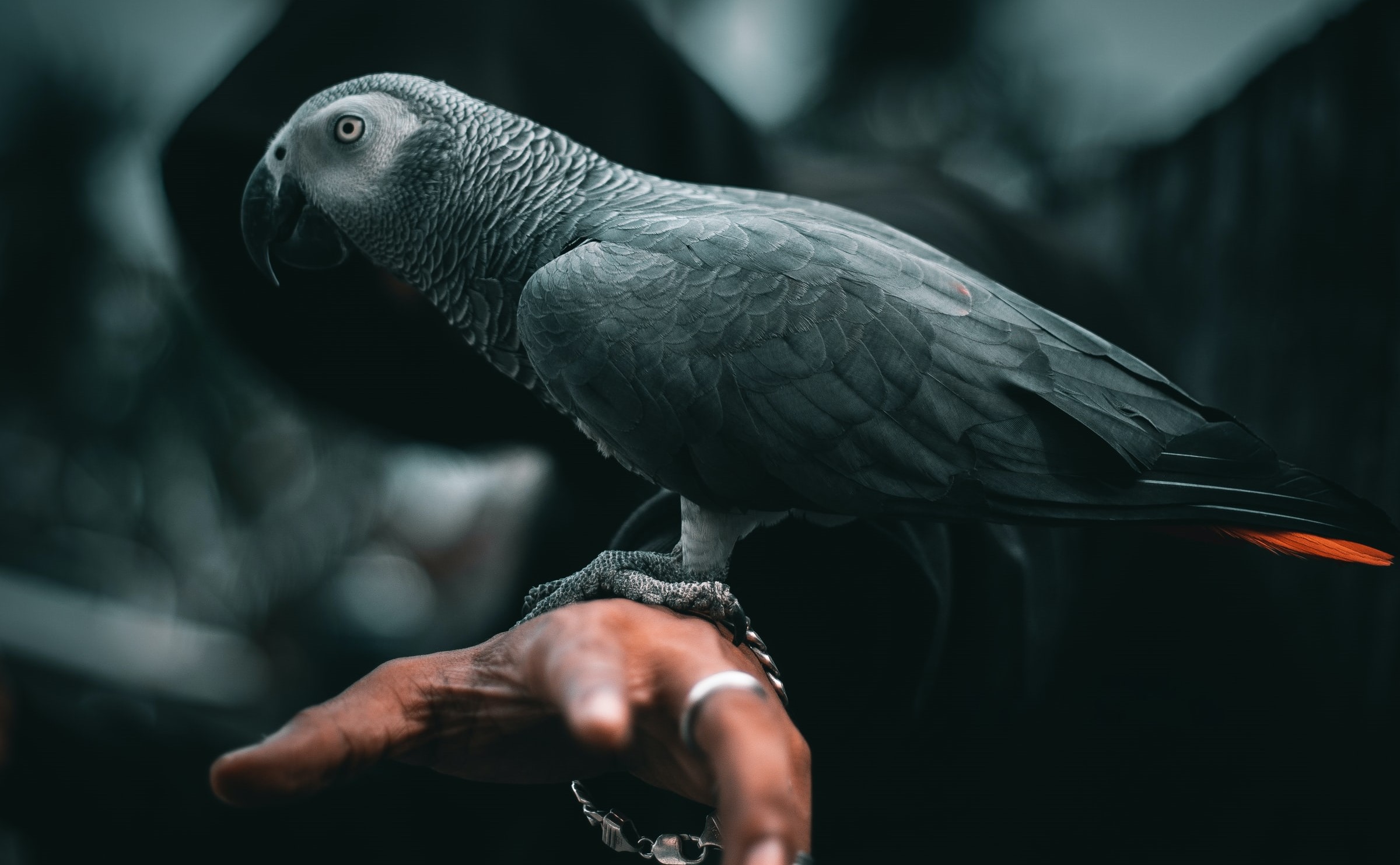JavaScript seems to be disabled in your browser. For the best experience on our site, be sure to turn on Javascript in your browser.
African Grey Parrot, Food, Personality and Care

African grey parrots have been household pets since biblical times. They have a fascinating ability to reason and an uncanny talent for accurately imitating words and phrases. They can also understand human speech, as a well-trained African grey can learn hundreds of words, phrases, and sounds.
Naturally, an African Grey Parrot's favoured habitat is the dense forest but it can also frequently be found at the edges of forests and in open savanna areas.
They are known to be quite sociable and are extremely sweet and affectionate toward their owners.
However, when they are bored or neglected, they are unhappy birds and a depressed or angry bird will screech its discontent. Although it is regarded as a very social bird that demands interaction, it is not necessarily a cuddly bird. It tends to be a "one-person" bird, even if owners make every effort to socialize them with all members of the family.
There are two categories of the African Grey Parrot, The Congo Grey Parrot and the Timneh Grey Parrot. The Congo Grey is about three times larger than the Timneh Grey Parrot. The Congo African Grey also boasts of a shiny black beak and bright red tail feathers, while Tinmeh Greys on the other hand have horn-coloured mandibles and deep maroon tail feathers.
African Grey Parrot HealthCare
African Grey Parrots can be prone to feather picking, calcium deficiency, vitamin-A and vitamin-D deficiency, respiratory infection, psittacosis, psittacine beak, feather disease, and other ailments.
Vitamin deficiencies can be avoided by making sure your bird eats a wide range of fruits, as well as vegetables high in beta-carotene, such as cooked sweet potato, and fresh kale.
Here are some Scarlette Health Care products you could use for the above-mentioned ailments and more.
African Grey Parrot Food and Treats
The best food for an African grey is a high-quality, formulated pellet supplemented with fruits like pomegranate, organic mango, and melon. Also, ensure you provide fresh vegetables that include leafy greens like arugula, watercress, kale, sprouts, and healthy seeds like hemp and flaxseed. You can premake chop, a salad for birds, that will help keep your African grey parrot healthy and thriving.
Check out our variety of Food and treats here
African Grey Parrot Toys
Sufficient amounts of activity are crucial for maintaining the health of your pet African Grey parrot. Ensure you Grey is allowed to spend a minimum of 1 to 2 hours out of its cage daily with vigorous exercise and make sure to provide it with plenty of bird-safe chew toys to help exercise its powerful beaks.
Check out our collection of pet-friendly bird toys here
African Grey Parrot Cage
Your pet's cage is crucially important. It needs plenty of space to move about to prevent it from getting stressed so it needs a cage that makes it feel safe and secure.
The minimum size of an African grey parrot’s cage should be is 36 x 24 x 48 inches.
Ensure you provide a playpen top with a tray and fill the area with toys and climbing frames to keep your parrot occupied.
They are cages for your pet parrot here
Other facts about the African Grey Parrot;
- African Grey parrots can live alone and also can other parrots. However, if you want to keep more than one bird, it is better to get them while they’re both young and raise them together in the same cage.
- African greys need to sleep for 12-14 each night.
- African grey parrots don’t need to be given a bath but can splash around in their water bowl.










